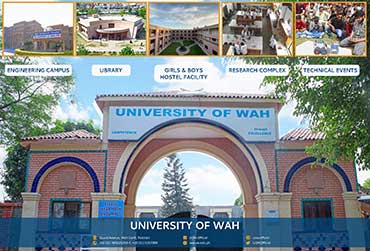UNIVERSITY OF WAH
Established in 2005 and is chartered by the Government of Punjab. The University has two constituent colleges, Mashal and Wah Engineering College. The University Campus is located in the beautiful and pollution free environment of Wah Cantonment.
Visit Website









